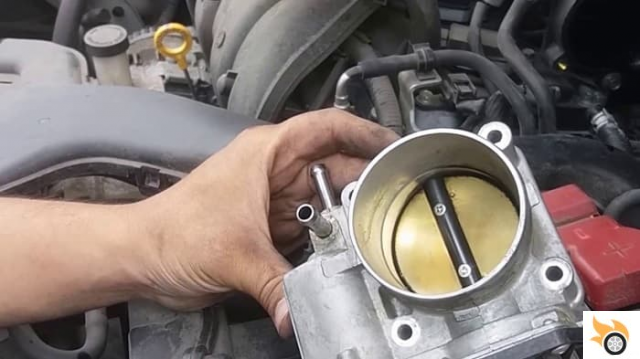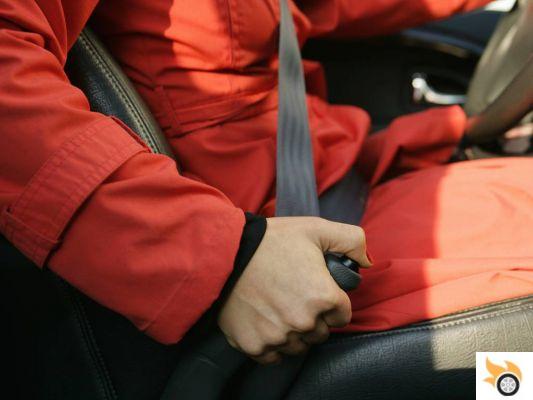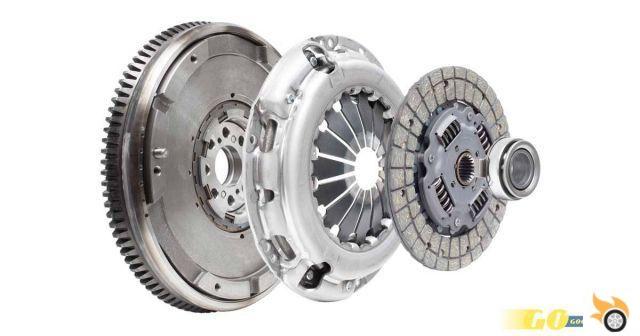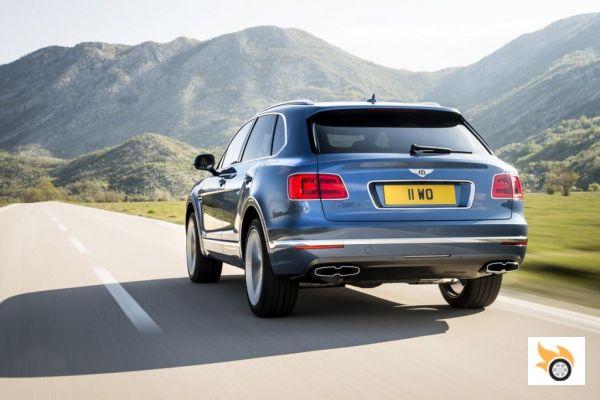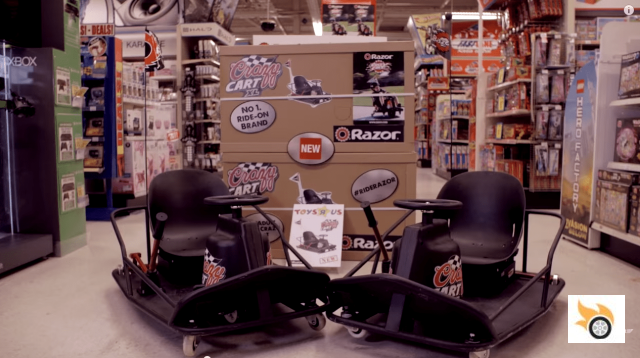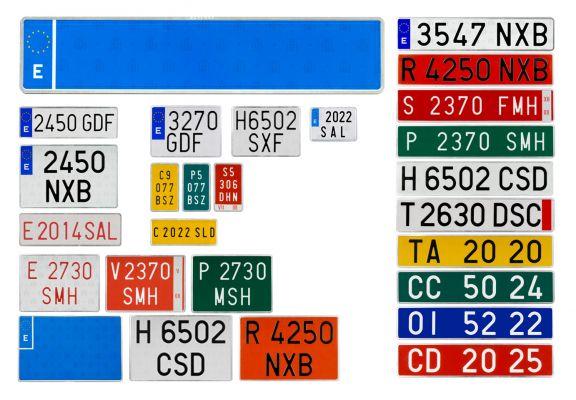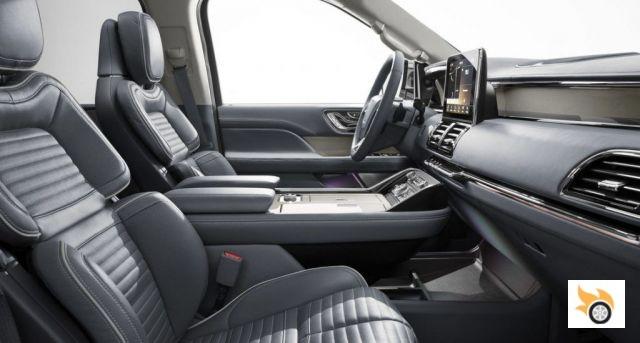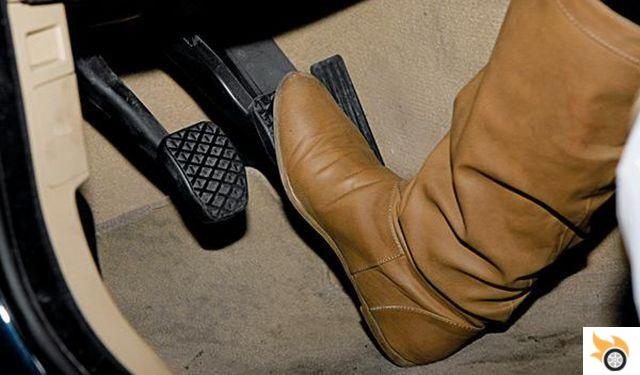 Soft Clutch Pedal Problems in Cars - Solutions and Tips | pistonknots
Soft Clutch Pedal Problems in Cars - Solutions and Tips | pistonknots
If you've noticed that your car's clutch pedal is soft, it's important that you investigate and fix the problem as soon as possible. In this article, we'll provide you with information on the possible causes of a soft clutch pedal, how to identify if the clutch is bad, and how to fix it. In addition, we will offer you advice and opinions from other users who have experienced similar problems. Read on for all the information you need!
What does it mean to have a soft clutch pedal?
Before we get into the possible causes and solutions, it is important to understand what exactly it means to have a soft clutch pedal. When the clutch pedal is soft, it means that it sinks easily when depressed, without offering the usual resistance. This can make it difficult to change gears and affect the overall performance of the vehicle. Now that we know what a soft clutch pedal is, let's look at the possible causes of this problem.
Possible causes of a soft clutch pedal
There are several reasons why the clutch pedal may be soft. Here are some of the most common causes:
1. Clutch fluid leak
One of the most common causes of a soft clutch pedal is a clutch fluid leak. If there is a leak in the clutch system, fluid can leak out and cause a drop in pedal pressure. This could be due to a bad seal or a damaged hose. If you suspect a clutch fluid leak, it's important to have it checked and repaired as soon as possible.
2. Clutch disc wear
Another possible cause of a soft clutch pedal is clutch disc wear. Over time, the clutch disc can wear down and become thinner, which affects pedal pressure. If the clutch disc is worn, it needs to be replaced to fix the problem.
3. Master cylinder problems
The master cylinder is an important part of the clutch system and if it is damaged or worn it can cause a soft clutch pedal. If you suspect that the master cylinder is causing the problem, it is recommended that you take it to a qualified mechanic for examination and possible repair.
4. Incorrect clutch adjustment
In some cases, a soft clutch pedal can be caused by improper clutch adjustment. If the clutch is not properly adjusted, it can affect pedal pressure and make it feel mushy. In this case, it is necessary to adjust the clutch properly to fix the problem.
How to identify if the clutch is faulty?
It is important to be able to identify if the clutch is faulty in order to take the necessary measures. Here are some signs that the clutch may be damaged:
1. Difficulty changing gears
If you find it difficult to change gears, especially when pressing the clutch pedal, it may be an indication that the clutch is bad. This can manifest as difficulty engaging the gear, strange noises or vibrations.
2. Smell of burning
If you notice a burning smell when you drive, especially when you step on the clutch pedal, it may be a sign that your clutch is worn or damaged. This smell can be caused by excessive friction on the clutch disc.
3. Loose clutch pedal
If the clutch pedal feels loose and offers no resistance when depressed, there is probably a problem with the clutch system. This may indicate wear or damage to any part of the system.
How to fix a soft clutch pedal?
Once you've identified that the clutch pedal is soft and possibly bad, it's important to take the necessary steps to fix the problem. Here are some possible solutions:
1. Check and repair clutch fluid leaks
If you suspect a clutch fluid leak, it's important to check the system and repair any leaks found. This may involve replacing damaged seals or hoses and topping up the clutch fluid.
2. Replace the clutch disc
If the clutch disc is worn, it needs to be replaced to restore proper pressure on the pedal. This must be done by a specialized mechanic, as it requires disassembling the clutch system.
3. Repair or replace the master cylinder
If the master cylinder is damaged, it is advisable to take it to a specialized mechanic for examination and possible repair or replacement. A bad master cylinder can cause clutch pedal problems.
4. Adjust the clutch
If the problem is incorrect clutch adjustment, it needs to be properly adjusted to restore pedal pressure. This should be done by a mechanic with experience in clutch systems.
Frequently Asked Questions (FAQs)
1. Can I drive with a soft clutch pedal?
Driving with a soft clutch pedal is not recommended as it can affect vehicle performance and make gear shifting difficult. It is important to fix the problem as soon as possible to prevent further damage to the clutch system.
2. How much does it cost to repair a soft clutch pedal?
The cost to repair a soft clutch pedal can vary depending on the cause of the problem and the model of your car. It is advisable to request estimates from different mechanical workshops to obtain an accurate estimate of the cost of the repair.
Conclusion
In short, if you've noticed that your car's clutch pedal is soft, it's important to investigate and fix the problem as soon as possible. Possible causes of a soft clutch pedal include clutch fluid leaks, clutch disc wear, master cylinder problems, and improper clutch adjustment. It is important to identify if the clutch is bad and take the necessary steps to correct the problem, whether it is checking and repairing leaks, replacing the clutch disc, repairing or replacing the master cylinder, or adjusting the clutch. Remember that it is advisable to go to a specialized mechanic to carry out these repairs. We hope that this article has been useful to you and that you can solve the problem with your soft clutch pedal. Until next time!




